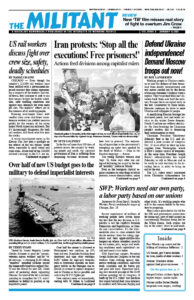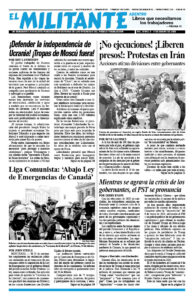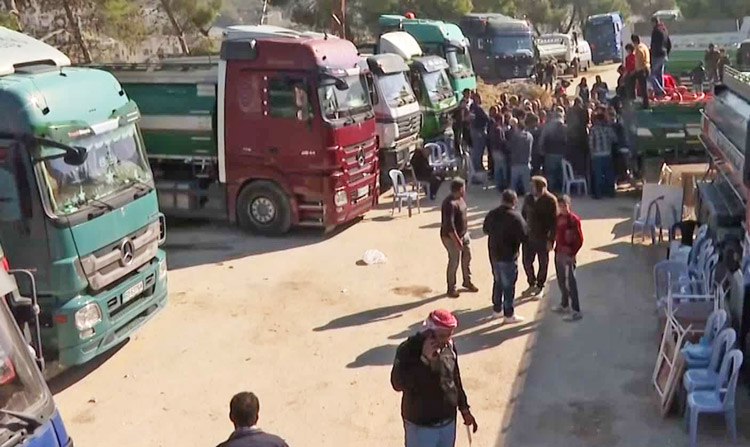Truck drivers in Jordan, above, ended a 17-day strike Dec. 19, after six members of parliament promised that their demands for lower fuel prices and cancellation of a special tax on fuel derivatives would be met. But some workers said they planned to continue the strike.
Under pressure from the International Monetary Fund, the government has been steadily raising the price of both diesel fuel used for transportation and kerosene used to heat homes, as well as imposing new taxes. One liter of diesel increased from about 70 cents last January to $1.26 today.
“By the end of the month, I’m in debt,” truck driver Khalid Shatnawi told Al Jazeera, saying his income no longer covers his expenses.
The average income in Jordan is $700 a month. Costs for kerosene is often 40% of a family’s monthly income. Unemployment reached 23% at the end of 2021.
The truckers were joined at times in their strike by bus, taxi and rideshare drivers in several provinces, along with shopkeepers who shuttered their stores for a day in solidarity. Goods piled up at phosphate mines and the port of Aqaba during the strike.
“I’m in trouble,” taxi driver Issa Ahabreh, who works 14 hours to make $17 a day, told Middle East Eye. “I will have to burn wood and books this winter because I cannot afford to buy kerosene.”
Forty-four people who the government claimed had participated in “riots” against the rising fuel prices were arrested, and government officials claim that a police officer was shot and killed during a clash in southern Jordan.


